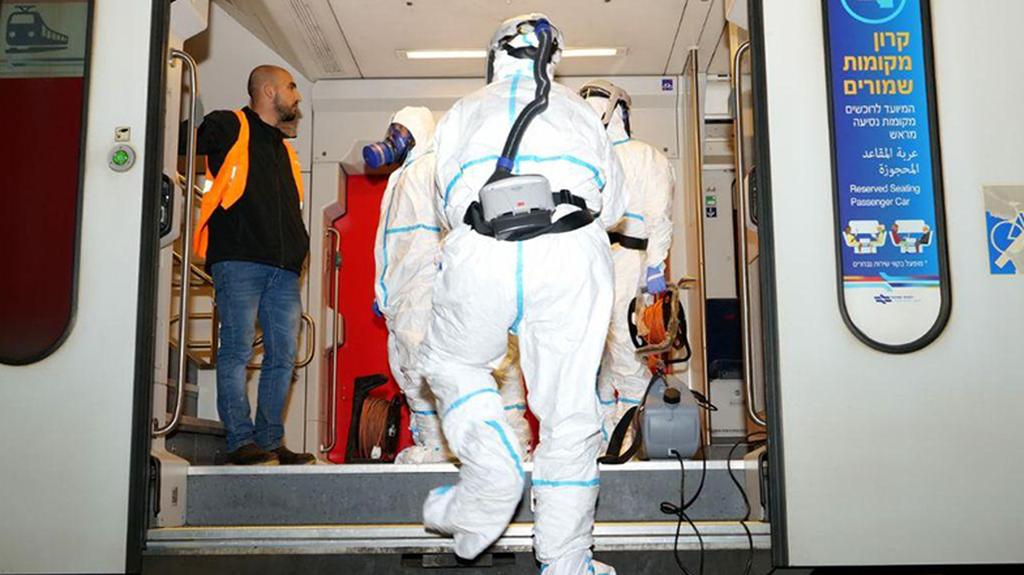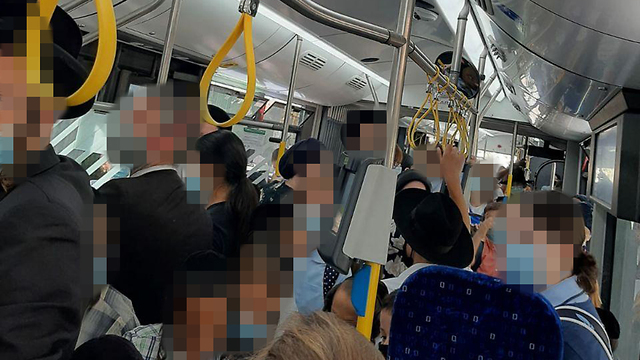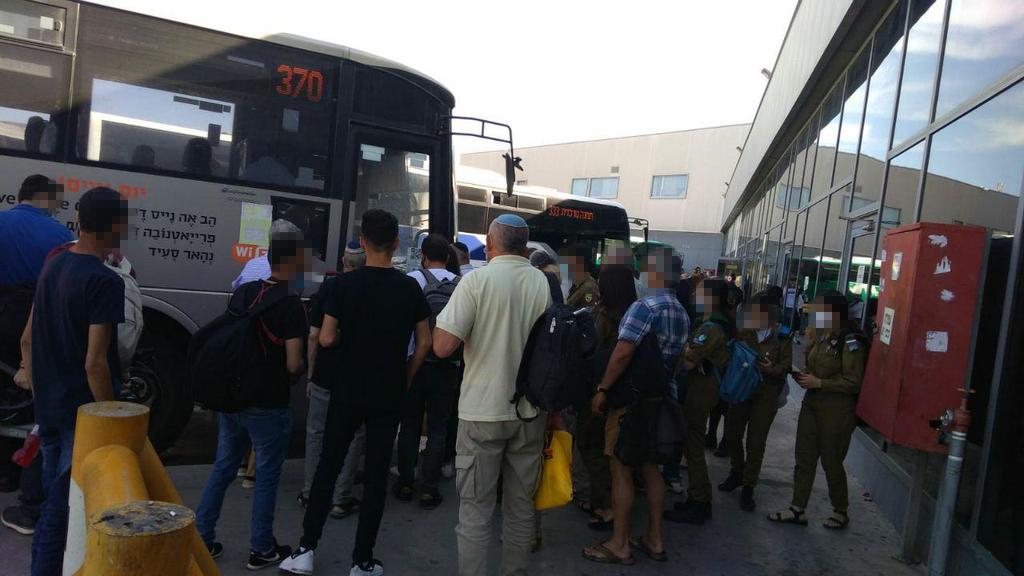The reopening of the economy and the return of many Israelis to their places of work have caused a worrying strain on the country's public bus system.
And with the closure of lanes on Tel Aviv's Ayalon ring road on Thursday, the situation is expected to worsen considerably.
On Wednesday, passengers reported extreme crowding on both urban and intercity buses across the country, forcing people to violate social distancing rules set out by the Health Ministry.
And while Transportation Minister Miri Regev addressed the issue of the trains on Wednesday, she did not have encouraging news.
"The Transportation Ministry and Israel Railways are ready to open the trains with pre-paid tickets, decontamination, inspectors, and an announcement system that will enable the public to enjoy accessible public transport and trains that will link the periphery to central Israel,” said Regev at the opening ceremony of an electric bus line in Jerusalem.
“However, we all need to understand that the data on the rising number of infections requires us to put everything on hold for the moment, ” she said.
Regev did not announce a new date for the reopening of the train, but said that relevant agencies would meet again by next week at the latest to reassess the situation.
Regev warned that if the public does not abide by Health Ministry guidelines for coronavirus, Israel will by the weekend reach a situation "that will require the government to make tough decisions."
Meanwhile, the passengers who normally take the train have been forced to spend long hours endangering their health on overcrowded buses.
"When the train runs, it takes an hour and 40 minutes, but now it takes three hours,” said a passenger who tried to make his way from the northern city of Haifa to Be’er Ya’akov
Lior Matzliah, a researcher who lives in central Israel, traveled to Haifa's Rambam Healthcare Campus on Monday, after the train was scheduled to return to full activity.
"We set the [meeting] for the end of May, and then postponed it to the beginning of June, and finally to Monday - all due to delays over the return of the train,” said Matzliah, whose trip to the hospital took three and a half hours.
Shimrit Nothman, the head of the 15 Minutes organization, which aims to improve public transport nationwide, said: "As we anticipated and warned the Transportation Ministry during the closure, it is not possible to return to normality without the full return of public transportation.
"We received many reports from passengers about the long wait for buses, as well as the fact that buses and private vehicles are stuck together in traffic jams on the roads as a result of the failure to operate the trains."
According to Nothman, the time spent on the road has increased for everyone due to the lack of train.
“It is time for the government to start telling us what it plans to do to save the economy and help the workers, and not just what it does not allow to run,” she said.




